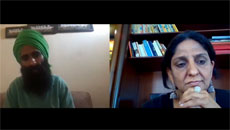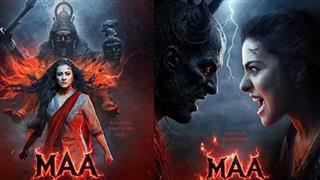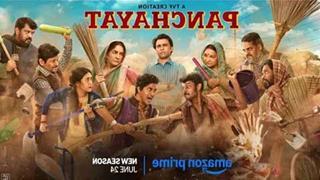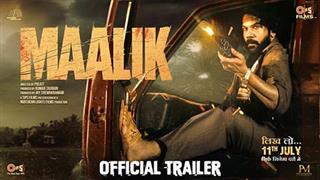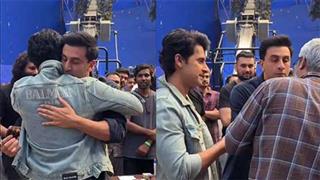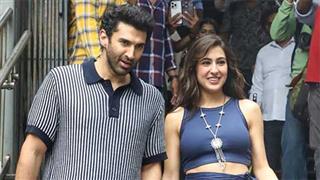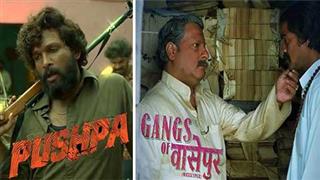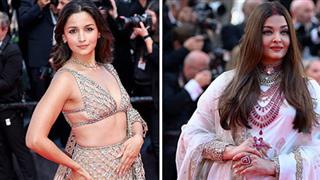Did you ever anticipate this furore over a line of song?
Not at all. If you look at the spirit of the film, it isn't about discrimination, it's about the participation of people from all walks of life.
I think the terms 'mochi' and 'sonar' were found to be objectionable?
I'm not aware of more politically correct terms for these professionals. But we've taken a very simple stance. If the line has offended such a large section of people, so much so that a chief-minister needed to take a position on it, then we have no reservations about deleting that line.
As I said Aaja Nachle isn't about discrimination but collective participation. The offending line has been physically cut from every print in the country.
But if the average man in Bihar or Madhya Pradesh can take the song in the right spirit why tamper with it?
No...See, if the ramifications are caste-oriented we can't discriminate between a state that objects or doesn't object. If we remove it in one state then we must remove it everywhere. This is the producers' decision.
We had never intended it to be objectionable to any one in the first place. Apparently the ban in UP has already been lifted.
My objection to Aaja Nachle is that the dances in the film do not represent our traditional culture.
Please define culture. It varies from person to person. The film is more about those cultural spaces where people can come together. My film wasn't aimed at propagating a purist culture. It's about bringing people from different walks of life for one endeavour. I didn't want to define culture.
The long staged Laila-Majnu climax seems a homage to traditional Indian theatre.
I'm sure even theatre purists will find complaints against it. Even as a play is staged there's cinema seeping into the sequence. But yes, again I wanted to depict a participative spirit. In college I've dabbled in theatre.
 The small-town ambience in Aaja Nachle is splendid.
The small-town ambience in Aaja Nachle is splendid.We created it on a set in Mumbai. And if people thought it was a location that's a big compliment. I went on a 20-day reiki checked out towns like Bhopal and Indore. Lots of real construction material was used on the sets.We wove in the chaos and confusions of a small town into out fictional town.
Women-centric films don't run...
Let's not be hasty. Let's wait a week.
Did Madhuri come into the picture before or after you wrote the script?
It's a bit of a chicken-and-egg thing. The idea was floating in my head. Then Madhuri was cast and the story just flowed from there. Now,my God, you don't know how the responsibility of making her comeback- film weighs on me! But I'm not daunted.
Did Madhuri make it any easier for you?
You know when she came on the sets she's such an easygoing person, she never let me get stressed about making Madhuri Dixit's comeback film. She was willing to give all of herself.
The last image we have of Madhuri is as Chandramukhi in Devdas.
She's still in equally splendid form. And she's bridging eras. She not only represents the kind of films that were made in the 1980s, but also cinema of today where she has a prominent place.
She has adapted herself wonderfully. It was such an asset to have her on the sets. Even in scenes where she has nothing much to do she was all there.Right now I'm this lady's biggest fan.
Apart from Madhuri you've a huge ensemble cast.
Yes. My job was made simpler because of the cast. All the actors I got were on my wish list. My experience as a cinematographer with epic filmmakers like Sanjay Bhansali, Ashutosh Gowariker and Karan Johar helped me cope with so many actors. Also the support one gets from Yashraj is incredible.
 You're known to do meager work.
You're known to do meager work.That's why I moved from Mumbai to Bangalore. I wanted to live peacefully. But somehow I've worked at my own pace. I was fighting shy of direction for long.
One day when I was shooting Veera-Zara Aditya Chopra asked me if I wanted to direct. I told him of an idea about a smalltown setting. Those big urban fables don't interest me.The film may look lavish because of the dances. But I've kept the treatment very simple.
Why did you choose to hand over the cinematography to someone else?
I purposely made that choice. You've to be very talented to do both direction and cinematography. When I took Mohanan on I let him interpret my vision from the start.
The whole business of direction is so all -consuming I left all others aspects of the film to others. I expect my cinemtographer to contribute as much as me.
Cinema to me is about collaboration with everyone including choreographer who in this case is very important. I'd always insist on getting a cinemtographer on board when I'm directing.
What would your next directorial assignment be?
I haven't given it any thought. Even as a cinematographer I never planned to take on another project before finishing the one I was doing. I intend to do the same as a director. After Aaja Nachle it's time to hibernate for myself.





